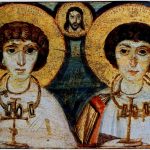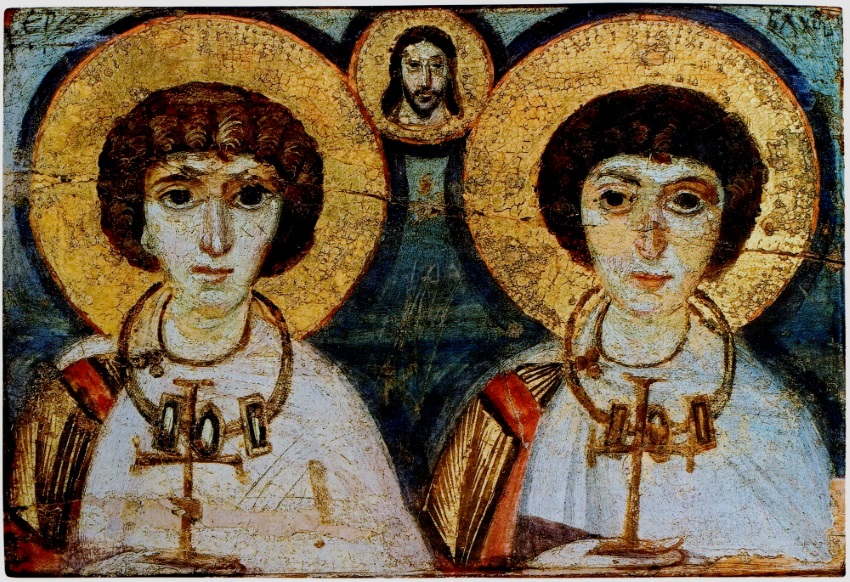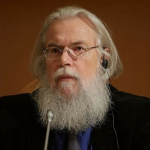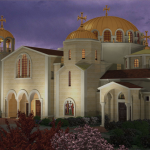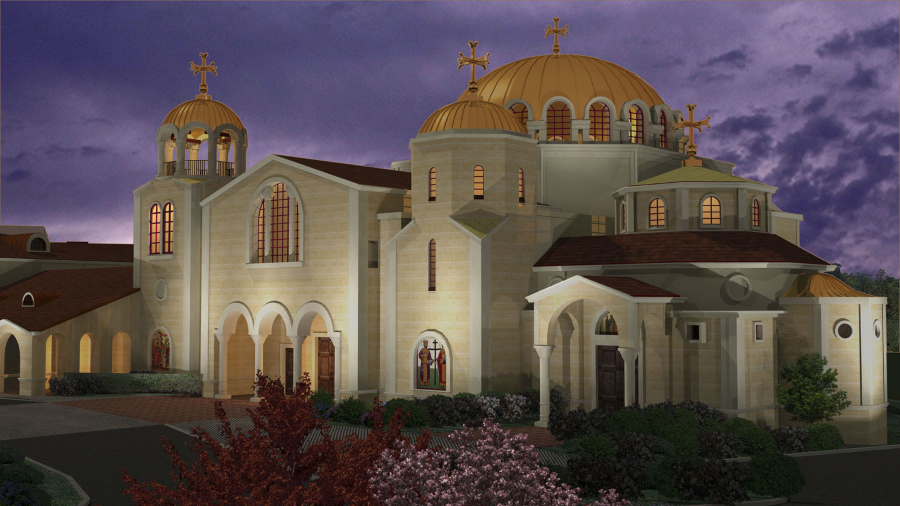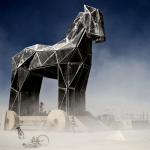Deprecated: trim(): Passing null to parameter #1 ($string) of type string is deprecated in
/home/aoiusa/public_html/wp-content/plugins/sexybookmarks/public.php on line
388
Deprecated: trim(): Passing null to parameter #1 ($string) of type string is deprecated in
/home/aoiusa/public_html/wp-content/plugins/sexybookmarks/public.php on line
394
Deprecated: trim(): Passing null to parameter #1 ($string) of type string is deprecated in
/home/aoiusa/public_html/wp-content/plugins/sexybookmarks/public.php on line
400
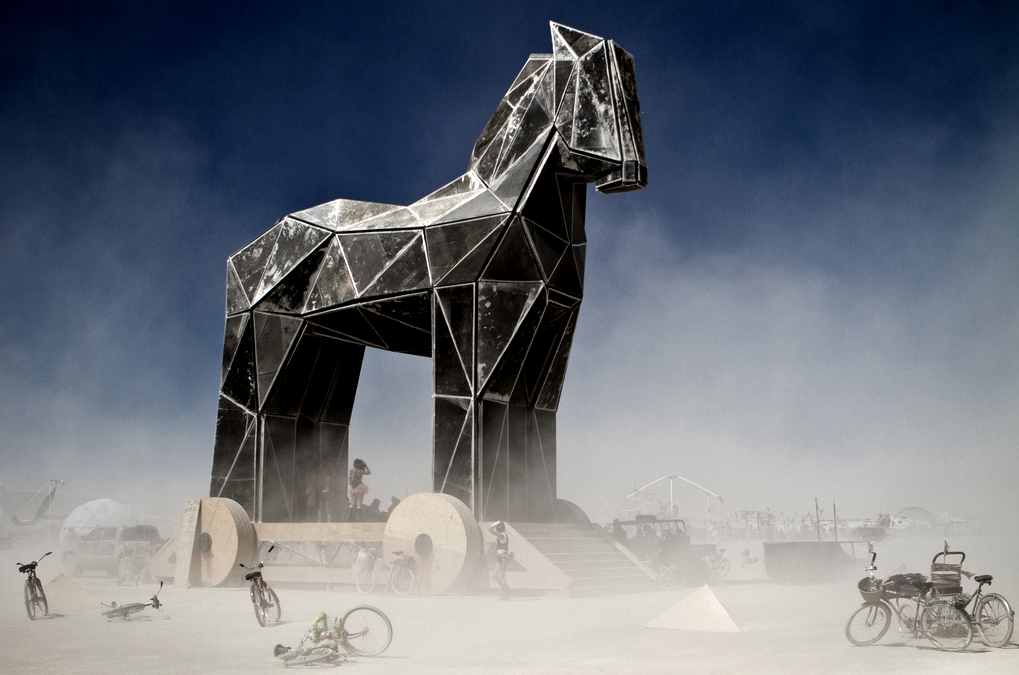
Source: Touchstone Magazine
Reprinted with permission of the author.
By Fr. Alexander F.C. Webster
The benighted Pan-Orthodox Council in Crete in June 2016 reminded Orthodox Christians that the rock of Orthodox faith and practice has been splitting for decades. The fissures are particularly evident among the approximately one million Orthodox Christians in the United States.
What is unconventional about the tone of the conflict is the aggressive ad hominem rhetoric of the avant-garde toward those who insist on unwavering fidelity to Orthodox Tradition. In a community widely known for its conservative approach to religious doctrine, morality, and liturgical rites, innovators would normally maintain a low profile, avoiding unwanted attention and charges of “heresy,” while gradually trying to effect “change.” Ironically, the Orthodox traditionalists are under assault and on the defensive in America and in a few autocephalous (“self-headed”) Churches around the globe.
The Orthodox “left” is waging their offensive on three fronts. Since the vast majority of the Orthodox faithful in this country are unaware of such machinations by the few but determined intellectual elites—clergy and laity—engaged in this spiritual warfare, I shall borrow Orthodox columnist Rod Dreher’s use of Homer’s “Trojan Horse” as an apt metaphor for the primary tactic of those elites.1 In fact, I intend to triple-down on that metaphor. Like the celebrated tactical ploy of the ancient Greeks, the contemporary Orthodox Trojan Horses appear to be gifts but are, instead, full of clandestine theological warriors poised to sack the Church.
Dismissal of Orthodox “Deplorables”
The first Trojan Horse is the increasing tendency of Orthodox leftists to mimic Hilary Clinton’s infamous “basket of deplorables” insult of September 9, 2016, against half of her opponent’s supporters. In this case the epithets are born of theological instead of political enmity.
Some of these neologisms seem a bit forced. For example, Aristotle Papanikolaou, Archbishop Demetrios Chair in Orthodox Theology and Culture and Co-Director of the Orthodox Christian Studies Center (OCSC) at Fordham University, has dusted off an ancient Christological heresy. He perceives what he calls “political Nestorianism”—defined as “a politics of dualism, a politics of us vs. them, a politics of demonization”—among American “Christians, including Orthodox, who cannot but see certain political issues as driven by a godless, politically liberal, humanistic agenda.”2 That is rhetorical overkill directed at fellow Christians who are, shall we say, more Tradition-minded than himself.
The expletive of choice among the Orthodox left appears to be “fundamentalist.” Never mind that term’s Evangelical Protestant provenance, dating from 1922, when Curtis Lee Laws took a cue from the publication of The Fundamentals tractates in the previous decade. Never mind that the term began as a badge of honor. Never mind the weird misapplication of it since the 1980s to large swaths of Islam and reactionary elements in other religious communities. The Orthodox left is simply echoing the anti-Evangelical hyperbole of the mainstream liberal Protestant denominations in the National Council of Churches and World Council of Churches with whom they have shared brie and Chablis for so many years.
No less an ecclesial dignitary than Archbishop Chrysostomos of Cyprus (senior bishop of an ancient autocephalous Orthodox Church) fired a shotgun blast indiscriminately on the first day of the recent Pan-Orthodox Council at unspecified anti-ecumenical “groups” whom he blamed for the absence of four entire Churches from the council: “The fundamentalist and fanatic groups, among which are theologians and hierarchs, which to a greater or lesser extent today are active throughout the whole Orthodox world, are a serious reason why a real threat of not only postponing, but even of canceling the Holy and Great Council loomed over it.” The archbishop identified the targets of his ire simplistically as those who oppose “any idea of drawing nearer to other Christians.”3
Back in the United States, a growing cadre of Orthodox scholars, mostly lay theologians, have, with increasing abandon, dismissed many of their co-religionists as “fundamentalists”—perhaps none more often and harshly than George Demacopoulos, Fr. John Meyendorff and Patterson Family Chair of Orthodox Christian Studies and Co-Director of the OCSC at Fordham University. In a blog post in January 2015 on an official website of the Greek Orthodox Archdiocese of America, Demacopoulos depicted his unnamed theological opponents in overwrought ad hominem smearsas “extremists” and “radical opportunists” who pose an “insidious danger” motivated by “self-promotion.” Demacopoulos averred that their “key theological error” is “the presupposition that the Church Fathers agreed on all theological and ethical matters”—a patently nonsensical claim to anyone who has delved into the rich variety of extant patristic texts. Other dangerous trends that Demacopoulos perceives, falsely, include a preposterous insistence “that the Fathers were anti-intellectual”; “the slavish adherence to a fossilized set of propositions,” a mere “subset of theological axioms” derived from a “reductionist reading of the Church Fathers” and used as “a political weapon”; and an inevitable “idolatry” in lieu of an “earnest and soul-wrenching quest to seek God and to share Him with the world.” Demacopoulos’ phrase “soul-wrenching quest” is, on the contrary, a weird post-modern existentialist -distortion of the Church Fathers. Cartoonish does not begin to capture that kind of bizarre, emotive diatribe.4
But what is really behind all the heated rhetoric? A clue appeared in a brief post-council assessment in September 2016 in the mainline Protestant journal The Christian Century by Peter C. Bouteneff, Professor of Systematic Theology at St. Vladimir Orthodox Theological Seminary in New York. He referred to the Orthodox Church as “lagging in its responsiveness to modern demographic realities and to modernity in general.”5
Embrace of “Secularization”
That moderns-versus-ancients meme also undergirds the second Trojan Horse: a full embrace of “secularization,” while ostensibly rejecting “secularism.”
In an essay “sponsored” by the Orthodox Theological Society of America (OTSA) and published in May 2016 with the stated purpose of influencing the Pan-Orthodox Council in Crete the next month, six Orthodox scholars, including Fordham’s Aristotle Papanikolaou, proclaimed the virtues of secularization:
[S]ecular political spaces are not defined by a high wall between religion and politics, but a differentiated public and legal order that maximizes pluralism. In secular societies, the differentiation of spheres (political, legal, economic, religious, etc.) has become an essential tool for the restraint of state power and the protection of human liberty. Thus, while it is right to reject secularism as an anti-religious ideology, the Church should discerningly approve of secularization, in order to ensure that her life is not restricted to certain precarious political spaces, but made available to all people. Secularization liberates the Church from political confinement, enabling the Gospel to be freely chosen as a way of life.6
There is some merit in that distinction. Not all attempts at secularization have been coupled with “an anti-religious ideology”—at least not yet. But the connection is unmistakably evident in every country that has succumbed to communism, beginning with Orthodox Russia in 1917 and continuing today under the godless regimes in North Korea and Cuba. Nor is the secularization of Western Europe and the United States immune to what appears to be an inexorable degeneration into prohibitions of “public” religious activity that may yet result in full-blown persecution. The OTSA group’s attempt at intellectual nuance may be more naïve and quixotic than wise and realistic.
A more subtle, expansive argument in favor of secularization appears in Aristotle Papanikolaou’s 2014 book, The Mystical as Political: Democracy and Non-Radical Orthodoxy. His project attempts to bridge the secular and sacred realms by extolling the former at the expense of the latter. One key theological presupposition is this: “I do not think the transcendent referent need be to the divine, but can take the form of a common good.” In an earlier version of that argument in 2003 under the title “Byzantium, Orthodoxy, and Democracy,” Papanikolaou proceeds to circumscribe the most essential of the Church’s divine purposes:
In relation to a democratic form of the common good, the church must accept its own limits and recognize that the goal is not the formation of a eucharistic community through persuasion but, rather, the construction of a community in which diversity and multiculturalism are affirmed and protected and in which the recognition of such diversity and multiculturalism must be enforced if they are not voluntarily accepted.7
By 2014, Papanikolaou had replaced “multicuralism” with “cultural difference.”
But that mild change did not conciliate Vigen Guroian, Armenian Apostolic professor emeritus at the University of Virginia. In a devastating review of The Mystical as Political in First Things, Guroian revealed the Trojan Horse in Papanikolaou’s argument:
In the place of this ecclesial vision of transformation, we are served the claptrap of diversity and political correctness. . . . Enforced? Does this not imply that the liberal state has a responsibility and right to coerce the Church when the Church does not affirm “diversity and cultural difference”? Surely, Papanikolaou knows that these terms are the property of the progressive left that insists on same-sex marriage, among other things Orthodoxy refuses to “recognize.”8
In “The Secular Pilgrimage of Orthodoxy in America,” a subsequent paper given at the annual OTSA conference on June 23, 2016, Guroian questions why the religious pluralism that defines America in the twenty-first century “is interpreted as the norm of religious life, much as a separation of church and state is interpreted as a divine mandate, almost as if it is an eleventh divine commandment.” Why should the Orthodox Churches embrace a more aggressive secularization that would put them back into their previous religious and ethnic ghettos apart somehow from the common good?
The road to secularization ought to be for Orthodox Christians—indeed, all traditional Christians—as in Robert Frost’s memorable poem, “the one less traveled by.”
Sexual Potpourri
The third Trojan Horse may be the most spiritually dangerous of all.
The emergent Zeitgeist of sexual disorder, confusion, and libertinism that first appeared in America in the 1960s has become the dominant social ethical ideology. Who could have imagined that any Orthodox clergyman or theologian would enlist in such a movement? Alas, the ranks are growing, it seems, with each passing year.
Prominent Orthodox clergy and theologians have advocated for various avant-garde causes of non-Orthodox provenance, ranging from women clergy (first, the “restoration” of the obsolete order of “deaconess” and, for some, even the radical innovation of female “priests”) to a soft-sell of the ancient proscriptions against abortion to the latest trend, “transgenderism.” But the granddaddy of them all is a mounting obsession with all things LGBT.Concerning the latter, the leftist elites are surprisingly not so far ahead of a majority of the regular church-going faithful. The 2016 Religious Landscape Study by the Pew Research Center disclosed that 64 percent of Orthodox Americans surveyed in 2014 thought that homosexuality “should be accepted,” while only 31 percent thought it “should be discouraged.” Similarly, 54 percent strongly favored or favored “same-sex marriage,” while only 41 percent strongly opposed or opposed it. The “same-sex marriage” percentages comport with those of Mainline Protestants and Catholics, but are inverted compared to Evangelical Protestants and Mormons.9
Still, three Orthodox scholars (two of them ordained priests) constitute an elite vanguard pushing hard for this deeply disturbing movement.
First, Fordham’s Aristotle Papanikolaou recently signaled his sentiments in his post-election op-ed titled, “Being Christian during a Trump Presidency”: “[I]f Christians do not prophetically demand of Trump that he publicly disavow white supremacist support, then Christians are complicit in extending and empowering racism, anti-Semitism and homophobia.”10 Struck, in particular, by the last term in that Clintonesque litany of deplorables, I asked Papanikolaou in a telephone conversation to specify what he would deem an unreasonable fear of homosexuals (for that is what the politically correct term “homophobia” means literally) among Orthodox Christians. He replied that violence, of course, would be reprehensible, and on that we would agree. But he also proffered that “discrimination” against active homosexuals in hiring also ought to be prohibited as an offense against decency and common humanity—even in Orthodox parishes and parochial schools!
Second, a respected senior archpriest in the Orthodox Church in America (OCA), Fr. Alexis Vinogradov of Wappingers Falls, New York, threw down a gauntlet on this issue in July 2011. For a now-defunct Orthodox blog, he wrote an article titled, “New Beginnings in Community: Gender Issues and the Church.”11 He hoped “to start a conversation . . . because among the Orthodox churches, at least, we do not yet have a common platform for respectful discourse on the complex social issues of our day.”
But “respectful discourse” quickly evaporated when he began to rail against the “growing appeal and reliance on simplistic and formulaic answers” among many of his fellow Orthodox. “Such a religiosity cannot,” he continued, “tolerate ambiguities, for it attributes the modern moral and spiritual crisis entirely to the disdain for absolutes and certainties. . . . So, we are told that the debate on sexuality must stop, because the indisputable norm is the choice of heterosexual marriage or celibate life in society or in monasticism.” Alert traditional Christians could already spot the Trojan Horse that Fr. Alexis was trotting out, as he subtly began to call for a new, third “norm.”
Fr. Alexis elaborated in such a way as to remove all doubt concerning his vision:
Homosexual persons did not decide to become homosexual. It was not the fruit of their supposed depravity or sin. That much we know today. There can only be a continuing conversation if we can cross that hurdle of blatant intransigence by those who refuse to acknowledge this fact. But homosexual persons, just as much as heterosexual ones, need to feel the warmth and love and nurture of other persons. God created them for that love, that love is the substance of our humanity; it is what constitutes all of us in bearing his image within us. For any member of the human race when that love is not forthcoming openly and easily, when community taboos and fears isolate them away from the family, it is inevitable that their legitimate searching and need will appear as an anomaly to those who have safely passed through the invisible selective screen. The selective culture, society in general or church, will have pushed them to extremes.
That appeal is all too familiar to Protestants and Roman Catholics in America, but it is still novel to most faithful Orthodox Christians: we must accept homosexuals, who are born that way, and not drive them away by calling them to repentance and celibacy—the only traditional moral “norm” besides “heterosexual” marriage. Later in his article Fr. Alexis had the chutzpah to warn that it is “our callousness, judgment, and self-assurance,” not sexual perversion, that “can injure” the Bride of Christ, the Church.
Fr. Alexis afforded us a sobering glimpse of the way the spirit of the world has captured those who would take it upon themselves to lecture and even scold us (fill in the blank: simplistic, frightened, totalitarian, intolerant, superficial, intransigent, self-centered, unrestrained, callous, spiritually weak—Fr. Alexis hurled all of those epithets our way in his brief for affirmation of the “other”) Orthodox and other Christians who reject the tiresome notion that the times are a-changin’ and we must change with them.
Third, Archpriest Robert Arida, longtime pastor of the OCA Cathedral of the Holy Trinity in Boston, has played the role of Odysseus for this modern Trojan Horse. In June 2011, shortly after New York passed the Marriage Equality Act, which legalized marriage between two men or two women, Fr. Robert posted on his parish website a short essay titled, “Response to Myself.” Weighing the implications of the new legal trend, he explored the Church’s checkered history tolerating slavery and concluded by proposing an intriguing hypothetical:
If the Church is going to respond to the legalization of same sex marriage/union it seems that it should begin by considering how to minister to those same sex couples who being legally married come with their children and knock on the doors of our parishes seeking Christ. Do we ignore them? Do we, prima facie, turn them away? Do we, under the rubric of repentance, encourage them to divorce and dismantle their family? Or, do we offer them, as we offer anyone desiring Christ, pastoral care, love and a spiritual home?12
Although that scenario may seem, prima facie, to require pastoral nuance and sensitivity, Fr. Robert’s use of “or” in the final sentence betrayed a subtle questioning, and perhaps rejection, of a universal requirement for the Holy Mystery of Matrimony in Orthodoxy—namely, one man and one woman. He clearly implied that anything less than a full embrace of the “family” as is in his hypothetical would be unpastoral, intolerant, and unloving.
Another essay on Fr. Robert’s parish website three years later, “Never Changing Gospel; Ever Changing Culture,”13 caused a firestorm when it was also carried on the Wonder blog, an online publication of the Department of Youth, Young Adults and Campus Ministries of the OCA. Fr. Robert purported to “raise questions,” lest we turn the past into “an oppressive tyrant.” While affirming, in the spirit of Hebrews 13:8, “the unchanging Gospel who is Jesus Christ,” Fr. Robert insisted that the Church must “come to terms with postmodern culture”—that is, by demonstrating “a desire on the part of all the faithful—bishops, priests and laity—to allow the mind and the heart to change and expand.”
That, in turn, entailed this oxymoron, which Fr. Robert put in both italics and boldface for effect: “To preach the never changing Christ requires us to be ever changing“—not only spiritually through struggle against sinful passions, personal repentance, and cultivation of the virtues, but also theologically by “no longer ignor[ing] or condemn[ing] questions and issues that are presumed to contradict or challenge its living Tradition.” On the one hand, he berated “Orthodox Christians who misuse the never changing Christ to promote a particular political agenda and ideology or as license to verbally and physically assault those they perceive as immoral.” Translation: traditional Christians who “bully” homosexuals. On the other hand, he did not specify how Orthodox Christians ought to “expand” their minds and hearts on the “issues” he enumerated.
But Metropolitan Tikhon (Mollard), primatial bishop of the OCA, was able to read between the lines. He removed Fr. Robert’s essay from the OCA’s Wonder blog and substituted his own response. The bishop offered a brief clarification of the OCA’s long-standing teaching on marriage, the family, and human sexuality and explained why discussion of such profound theological and moral issues “would benefit from a more in-depth analysis than can be provided on a blog.”14
However, Metropolitan Tikhon’s intervention came too late. Fr. Robert’s essays, and the initial official approval of one of them, reveal that this Trojan Horse is already inside the gates of the Orthodox Church in America. Soon to appear in print through the auspices of the so-called European Forum of LGBT Christian Groups is a new volume of essays under the title, “For I Am Wonderfully Made”: Texts of Eastern Orthodoxy and LGBT Inclusion. Among the contributors are Archpriests Robert Arida and Alexis Vinogradov, Mark Stokoe (a layman in the OCA), Dr. Bryce R. Rich (an OCA lay theologian and author of a chapter titled, “A Queer Personhood: Freedom from Essentialism”), and Maria McDowell (an erstwhile OCA scholar who left the Orthodox Church and was joined in “marriage” to a woman by a female Episcopal minister).
A Familiar But Daunting Task Ahead
What we behold in the appeals of the trailblazing Orthodox scholars discussed herein is a subtle, erudite, but disingenuous public challenge to abandon ancient Christian verities under the guise of a “conversation” or “discussion.” That should sound an alarm to refugees from mainline Protestant denominations and radical Roman Catholic parishes who witnessed the naive embrace of their own Trojan Horses beginning in the 1960s. The pattern is unmistakable: first, a call to “transcend” narrow, rigid, archaic dogmas, coupled with an invitation to a “conversation” to share viewpoints based primarily on personal experience and “new” knowledge instead of immersion in the Tradition; followed by a summons for mutual forbearance, tolerance, and, ultimately, full acceptance of diverse moralities. Soon enough, the orthodox frog in the gradually boiling pot is fully cooked and no longer a living frog.
One of the scholars quoted above, who regularly teaches a Sunday school class for Orthodox high-school students, told me that he never includes sexual morality in his curriculum and dreads whenever a student even so much as asks a question about any sexual issue. So captive to contemporary sexual mores are those high-schoolers that he is convinced that any attempt to present traditional Orthodox teaching might be, at best, futile but would, in fact, drive every one of his students from the Church altogether. Such pedagogical timidity constitutes, in my estimation, ecclesial malpractice, a preemptive surrender to the Zeitgeist and a guarantee that those Orthodox teenagers will eschew prophetic moral witness to society lest it disrupt their comfortable accommodation to the surrounding culture.
Perhaps this essay will sound a clarion call to all of the Orthodox bishops in America, as well as clergy and laity, to engage with love and justice those who would distort our venerable moral tradition.
REFERENCES
1. theamericanconservative.com/dreher/the-orthodox-trojan-horse.
2. https://publicorthodoxy.org/2015/10/12 and https://publicorthodoxy.org/2016/11/11.
3. pravoslavie.ru/english/94598.htm.
4. blogs.goarch.org/blog/-/blogs/orthodox-fundamentalism.
5. christiancentury.org/article/2016-09/great-and-holy-council.
6. https://publicorthodoxy.org/2016/04/05.
7. academia.edu/4292579/Byzantium_Orthodoxy_and_Democracy
8. firstthings.com/article/2014/04/godless-theosis.
9. pewforum.org/religious-landscape-study/religious-tradition/orthodox-christian.
10. https://publicorthodoxy.org/2016/11/11.
11. ocanews.org/news/Vinogradov7.12.11.html.
12. http://holytrinityorthodox.org/articles_and_talks/Response.pdf.
13. holytrinityorthodox.org/articles_and_talks/Never%20Changing%20Gospel.pdf.
14. http://wonder.oca.org/2014/11/01/never-changing-gospel-ever-changing-culture.

Fr. Alexander F. C. Webster , Ph.D., is a retired U.S. Army chaplain (Colonel) and parish priest of St. Herman of Alaska Russian Orthodox Church (Russian Orthodox Church Outside Russia), Stafford, Virginia.



